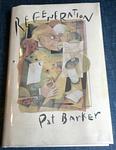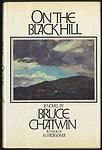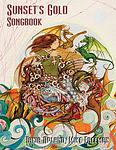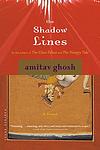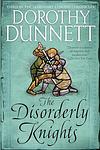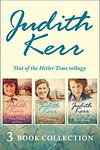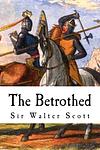The Greatest "Historical fiction, United Kingdom" Books of All Time
Click to learn how this list is calculated.
This list represents a comprehensive and trusted collection of the greatest books. Developed through a specialized algorithm, it brings together 300 'best of' book lists to form a definitive guide to the world's most acclaimed books. For those interested in how these books are chosen, additional details can be found on the rankings page.
Genres
Historical fiction is a genre of literature that combines fictional stories with real historical events, settings, and characters. These books often take place in a specific time period and are based on research and factual information, but also include imaginative elements to create a compelling narrative. Historical fiction allows readers to experience the past in a unique and engaging way, while also providing insight into the social, cultural, and political issues of the time.
Countries
Date Range
Reading Statistics
Click the button below to see how many of these books you've read!
Download
If you're interested in downloading this list as a CSV file for use in a spreadsheet application, you can easily do so by clicking the button below. Please note that to ensure a manageable file size and faster download, the CSV will include details for only the first 500 books.
Download-
1. Vanity Fair by William Makepeace Thackeray
This classic novel follows the lives of two contrasting women, the cunning and ruthless Becky Sharp and the sweet and naive Amelia Sedley, against the backdrop of English society during the Napoleonic Wars. The book is a satirical exploration of the obsession with wealth, status, and social climbing, and the moral bankruptcy that can result from such pursuits. The narrative weaves an intricate tale of love, betrayal, and redemption, exposing the vanity and hypocrisy of high society.
-
2. Wide Sargasso Sea by Jean Rhys
This novel is a postcolonial prequel to "Jane Eyre," exploring the life of Mr. Rochester's mad wife, Bertha. Set in Jamaica during the 1830s, it follows the story of Antoinette Cosway, a white Creole heiress, from her youth in the Caribbean to her unhappy marriage and move to England. Caught in a society that both rejects and exoticizes her, Antoinette is ultimately driven into madness by her oppressive husband and the haunting legacy of colonialism.
-
3. Regeneration by Pat Barker
"Regeneration" is a historical and anti-war novel set in a mental hospital during World War I. The narrative focuses on the experiences and interactions of a psychiatrist and his patients, most of whom are soldiers suffering from severe shell shock. The novel explores themes of masculinity, identity, and the psychological effects of war, while also critiquing the societal pressures and expectations that led many men to enlist and subsequently suffer from mental trauma.
-
4. Cloud Atlas by David Mitchell
This novel is a unique blend of six different stories, each set in a different time and place, spanning from the 19th century South Pacific to a post-apocalyptic future. Each tale is written in a different style, reflecting the time and setting it represents, and they are all connected through shared themes and recurring motifs. The stories are nested within each other, with each interrupted by the next, only to be concluded in the second half of the book. The novel explores themes of predacity, civilization, reincarnation and the eternal recurrence of the same behaviors throughout history.
-
5. Fingersmith by Sarah Waters
The novel is a gripping tale set in Victorian England, revolving around two young women, a petty thief and a rich heiress, whose lives intertwine in unforeseen ways. The thief is part of a con to defraud the heiress of her fortune, but as the plot thickens, the lines between deception and truth, loyalty and betrayal, love and manipulation get blurred. The narrative is filled with unexpected twists and turns, exploring themes of gender, sexuality, and class, and keeps the readers on the edge till the end.
-
6. Earthly Powers by Anthony Burgess
"Earthly Powers" is a sprawling, complex novel that explores the intertwined lives of a homosexual British writer and an Italian-American Cardinal over the course of the 20th century. The narrative delves into themes of faith, homosexuality, and the nature of evil, while also providing a critique of modern society. It's a vivid tapestry of historical events, including two World Wars and Vatican II, providing a backdrop for the personal and spiritual struggles of its protagonists.
-
7. Captain Hornblower R.N.: Hornblower and the 'Atropos', The Happy Return, A Ship of the Line by C S Forester
This book follows the thrilling adventures of a brave and strategic naval officer during the Napoleonic Wars. The protagonist is placed in charge of the 'Atropos', the smallest ship in the Navy's fleet, where he must navigate a series of challenging missions, including the recovery of treasure from the bottom of the Mediterranean Sea. The story also chronicles his return to England, where he must deal with a mutinous crew and the challenges of commanding a ship of the line. The protagonist's courage, intelligence, and leadership are tested at every turn, making for an exciting and captivating read.
-
8. Kidnapped by Robert Louis Stevenson
This adventure novel follows the journey of a young Scottish man, David Balfour, who is tricked by his uncle and sold into slavery. After being shipwrecked, he partners with a Jacobite rebel, Alan Breck Stewart, and they journey across the Scottish Highlands, evading authorities and battling foes. Throughout the narrative, themes of justice, friendship, and courage are explored, set against the backdrop of 18th-century Scottish politics.
-
9. G. by John Berger
"G." is a historical novel set in Europe at the beginning of the 20th century, tracing the life of its eponymous and mysterious protagonist 'G.' The narrative explores his relationships with women and his experiences during significant historical events such as World War I and the Italian Risorgimento. The book also delves into themes such as sexual and political identity, and the personal impact of broad social changes.
-
10. On the Black Hill by Bruce Chatwin
"On the Black Hill" is a novel that explores the lives of twin brothers, Lewis and Benjamin, who live on a farm on the English-Welsh border. The book spans 80 years of their lives, from the late 19th century to the 1960s, and examines the changes that occur in their rural world during this time. Despite the outside world's transformation, the brothers' lives remain largely unchanged, demonstrating the enduring nature of their close relationship and their connection to the land.
-
11. Death Of A Hero by Richard Aldington
This novel is a poignant exploration of the disillusionment and devastation wrought by World War I, told through the life and eventual demise of its protagonist, George Winterbourne. Enlisting with idealistic fervor, Winterbourne's experiences on the front lines strip him of his illusions, exposing the grim realities of combat and the incompetence of the British military leadership. As he navigates the horrors of war, his story also delves into his pre-war life and relationships, offering a stark contrast between the innocence of his early years and the brutal awakening he faces as a soldier. Ultimately, the narrative serves as a scathing critique of the societal and military values that led to such senseless loss of life, encapsulating the disillusionment of a generation scarred by the First World War.
-
12. Sunset Song by Lewis Grassic Gibbon
Set in the early 20th century in the fictional estate of Kinraddie in Scotland, the narrative follows the life of a young woman, Chris Guthrie, as she comes of age amidst the challenges of rural Scottish life. Torn between her love for the land and the pull of modernity, Chris navigates personal loss, the impact of World War I, and societal changes. The novel poignantly explores themes of identity, resilience, and the enduring connection to one's heritage, against the backdrop of the sweeping agricultural and social transformations of the time.
-
13. The Ghost Road by Pat Barker
"The Ghost Road" is a historical novel set during World War I that follows the experiences of a British army officer undergoing treatment for shell shock at a mental hospital. The narrative alternates between his perspective and that of his psychiatrist, who is fascinated by the psychological effects of war. The novel explores themes of trauma, memory, and the brutal realities of war, while also delving into the psychiatrist's own past experiences with a headhunting tribe in the South Pacific.
-
14. A Day Off by Storm Jameson
"A Day Off" is a novel that depicts a day in the life of a middle-aged woman named Eleanor, who is struggling with the mundanity and hardships of her life. Eleanor, who is married to an unfaithful husband and has a strained relationship with her daughter, decides to take a day off from her routine. Throughout the day, she reflects on her life, her dreams, regrets, and the choices she has made. The novel poignantly explores themes of love, loss, and the human condition.
-
15. The Shadow Lines by Amitav Ghosh
"The Shadow Lines" is a novel that explores themes of memory, family, and national identity through the eyes of a young boy and his experiences growing up in Calcutta, India. The narrative is framed by two major historical events: the 1964 Dhaka Riots and the 1942 World War II. The protagonist's relationships with his family and his personal experiences are juxtaposed with these events, highlighting the complexities of identity, memory, and the lasting impacts of historical events on individual lives. The novel also delves into the arbitrary nature of national borders and the shadow lines they draw between people and their histories.
-
16. Flashman by George MacDonald Fraser
This novel introduces readers to the notorious antihero Harry Flashman, a cowardly British soldier who, through a combination of luck and deceit, rises to prominence in the Victorian military despite his lack of heroism and moral fiber. Through a series of misadventures that span the globe, Flashman becomes entangled in various historical events, from the First Anglo-Afghan War to the Charge of the Light Brigade, always managing to escape by the skin of his teeth. The book, presented as a discovered historical memoir, combines humor, historical detail, and satirical commentary on the British Empire, offering a unique and entertaining perspective on Victorian society and military exploits.
-
17. The Disorderly Knights by Dorothy Dunnett
This novel, set in the mid-16th century, transports readers to the vibrant and tumultuous landscapes of Malta, Scotland, and France, following the adventures of a charismatic young nobleman. As part of a series, it intricately weaves political intrigue, historical events, and personal vendettas into a rich tapestry of storytelling. The protagonist, skilled in both intellect and combat, finds himself embroiled in the defense of Malta against the Ottoman Empire, while also navigating the treacherous waters of European nobility's power struggles. The narrative is celebrated for its detailed historical research, complex character development, and the masterful depiction of the chivalric order's role in shaping Europe's destiny.
-
18. Vertigo by W. G. Sebald
"Vertigo" is a complex narrative that combines elements of fiction, travelogue, biography, and autobiography. The novel is divided into four sections, each exploring the life and works of different historical figures such as Stendhal, Kafka, and Casanova, as well as the author's own experiences. The narrative is characterized by its exploration of themes such as memory, identity, and the past, often blurring the lines between fact and fiction. The book is also notable for its distinctive style, featuring long, meandering sentences and a lack of traditional plot structure.
-
19. When Hitler Stole Pink Rabbit by Judith Kerr
"When Hitler Stole Pink Rabbit" is a poignant and autobiographical novel that follows the life of a young Jewish girl named Anna and her family as they flee Germany in the 1930s to escape the rise of the Nazi regime. Through Anna's eyes, the book explores the challenges and hardships faced by refugees, as well as the loss of identity and sense of belonging. It is a touching story of resilience, courage, and the power of family bonds in the face of adversity.
-
20. For The Term Of His Natural Life by Marcus Clarke
"For The Term Of His Natural Life" is a gripping historical novel set in the early 19th century, following the life of Rufus Dawes, a young man wrongly convicted of a crime he did not commit. Transported to the brutal penal colony of Van Diemen's Land, Rufus endures unimaginable hardships, including harsh labor, cruel punishments, and the constant threat of death. As he navigates the treacherous world of convicts and corrupt officials, Rufus forms unexpected alliances and discovers the resilience within himself to fight for justice and freedom. This epic tale explores themes of injustice, redemption, and the indomitable human spirit in the face of adversity.
-
21. Gog by Andrew Sinclair
The book is a satirical narrative that follows the journey of a seven-foot-tall man who awakens with amnesia in a pit in the UK. With no memory of his past, he embarks on a quest to discover his identity, guided by cryptic clues he finds along the way. His odyssey takes him through the eccentric and often grotesque landscapes of post-war Europe, where he encounters a bizarre cast of characters and experiences that reflect the absurdities and the cultural and political anxieties of the mid-20th century. The protagonist's search for self-understanding becomes a metaphorical journey through a society struggling to find meaning in the aftermath of chaos and destruction.
-
22. The History Of Pendennis: His Fortunes And Misfortunes, His Friends And His Greatest Enemy by William Makepeace Thackeray
The novel follows the life and adventures of Arthur Pendennis, a young man from the countryside who ventures into the world to seek his fortune and find his place in society. Starting as a naive and idealistic youth, Pendennis faces various trials and tribulations in love, friendship, and his career, which lead him to maturity and a deeper understanding of himself and those around him. Through his journey, the book explores themes of social class, vanity, and the contrast between appearance and reality, all set against a backdrop of 19th-century British society.
-
23. The Abbot by Sir Walter Scott
"The Abbot" is a historical novel that continues the story of Mary, Queen of Scots, after her imprisonment in Loch Leven Castle, focusing on her dramatic escape, her brief period of renewed power, and her ultimate departure from Scotland. The narrative intertwines her story with that of Roland Graeme, a young man who finds himself caught between his loyalty to the queen and his own personal ambitions. Set against the backdrop of political intrigue and religious conflict during the Reformation, the novel explores themes of loyalty, love, and power, as characters navigate the treacherous waters of the Scottish court.
-
24. The Antiquary by Sir Walter Scott
"The Antiquary" is a novel set in the late 18th century that revolves around Jonathan Oldbuck, an eccentric and somewhat pedantic scholar with a deep fascination for antiquities and local history. The story unfolds in a small Scottish town where Oldbuck becomes involved in the lives and troubles of other characters, including Lovel, a mysterious young man with an unclear past, and the Mucklebackit family, who suffer a tragic loss. The narrative combines elements of romance, mystery, and comic relief while exploring themes of national identity and the impact of the past on the present. Through its detailed setting and character-driven plot, the novel offers a rich portrayal of Scottish life and customs during the period.
-
25. The Betrothed by Sir Walter Scott
"The Betrothed" is a historical novel set during the time of the Crusades, focusing on the challenges and tribulations of a young noblewoman who is promised in marriage to a Welsh chieftain as part of a political alliance. The narrative delves into themes of loyalty, honor, and love, as the betrothed couple navigates the complexities of their arranged engagement amidst the backdrop of war and political strife. The story explores the impact of personal and political conflicts on individual destinies and relationships, offering a rich tapestry of medieval life, chivalric values, and the struggle for power.
Reading Statistics
Click the button below to see how many of these books you've read!
Download
If you're interested in downloading this list as a CSV file for use in a spreadsheet application, you can easily do so by clicking the button below. Please note that to ensure a manageable file size and faster download, the CSV will include details for only the first 500 books.
Download

